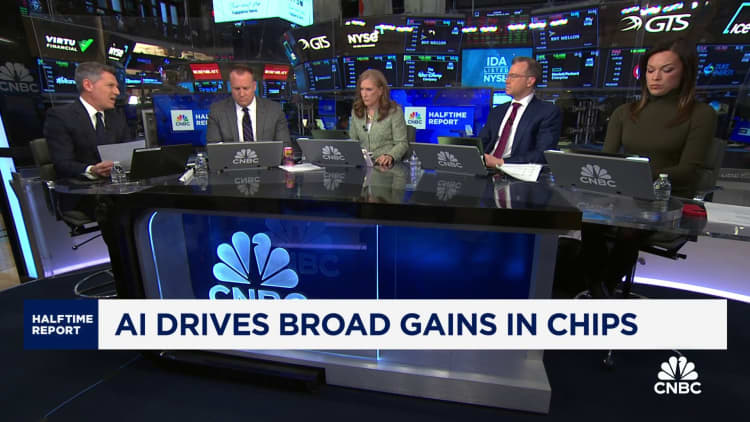SINGAPORE – Asia-Pacific's tech sector has been growing on the back of the semiconductor boom even as other industries struggle amid global macro uncertainty, according to investment bank JPMorgan.
"Tech has been recovering, that's why Asia has done reasonably well in the second half of last year. China industry benefited, North Asia obviously benefited more from it," Bruce Kasman, chief economist at JPMorgan said in a media briefing on Tuesday.
The tech sector, which thrived during the Covid-19 pandemic as companies accelerated their digitalization efforts, underwent a slowdown in 2022 and 2023 as high inflation and interest rates softened consumer spending, hit product demand and led to layoffs.
Global tech spending weakened in 2023 while layoffs rose, said Deloitte in a report on tech industry's 2024 outlook.
"But there are now glimmers of hope that a tech comeback may be imminent: Economists have lowered their assessments of recession risk, and analysts are optimistic that the tech sector could return to modest growth in 2024," Deloitte said.
The recovery in tech is significant as other industries are still struggling. "Even though we have seen recovery in tech, we are not seeing a broader based recovery in the non-tech sectors," said Ong Sin Beng, head of EM Asia economics research at JPMorgan, on Tuesday.
The artificial intelligence boom continues to boost chipmakers and is driving tech growth.
U.S. chip design firm Nvidia saw a 265% jump in fourth-quarter revenue, thanks to skyrocketing demand for its graphics processing units, thousands of which are used to run and train OpenAI's ChatGPT.

But the recovery is not uniform across the tech sector, JPMorgan said, singling out the semiconductor industry as the bright spot amid the AI boom.
"It is primarily in the semiconductor, dynamic random access memory sector. So we are seeing, for example, Korean production doing quite well. Taiwan is because of the logic chips we are seeing that do relatively well. So those are the two key beneficiaries in North Asia," Ong said.
Taiwan's TSMC is the primary contract chip manufacturer for Nvidia and has benefited from Nvidia's performance and potential.
South Korean DRAM chip makers such as Samsung Electronics and SK Hynix have also benefited from the AI boom as large language models like ChatGPT require high-performance memory chips to generate human-like responses.
"Our equity analysts who oversee the sector remain quite positive simply because it's built out of broader digitization, data centers, AI, etc," Ong said.
He also said Singapore was "certainly seeing that lift" from the semiconductor boom. The country manufactures 20% of global chip equipment, according to data shared at the Singapore Semiconductor Industry Association Semiconductor Business Connect 2022.
Last month, Singapore's deputy prime minister, Lawrence Wong, said in his Budget speech that the country will invest more than 1 billion Singapore dollars ($743 million) over the next five years to further boost the country's AI capabilities.
As part of the investment, Singapore will work to ensure it can secure access to the advanced chips "that are so crucial to AI development and deployment," Wong said.

